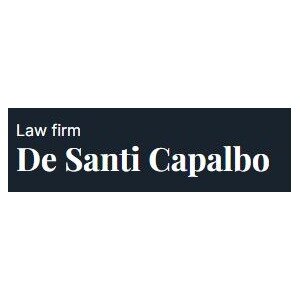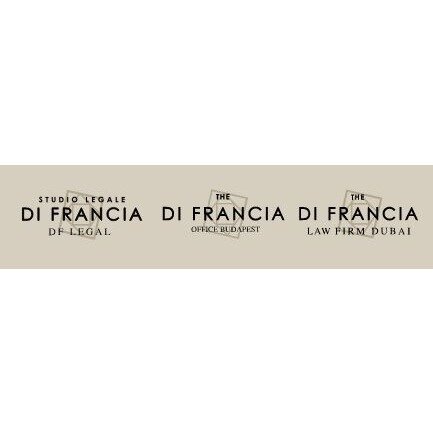Best Funds & Asset Management Lawyers in Bologna
Share your needs with us, get contacted by law firms.
Free. Takes 2 min.
List of the best lawyers in Bologna, Italy
About Funds & Asset Management Law in Bologna, Italy
Funds and asset management law in Bologna, Italy, forms a branch of financial regulation focused on the creation, operation, and supervision of investment funds and asset managers. Bologna, as part of the Emilia-Romagna region, is governed by both Italian national law and overarching European Union directives. The field encompasses rules for collective investment schemes, the protection of investors, and the licensing and conduct of asset management companies. Bologna’s dynamic business environment, home to institutional and private investors, corporate entities, and international institutions, makes this legal area essential for anyone dealing with pooled capital, portfolio management, or investment advisory activities.
Why You May Need a Lawyer
Legal support in funds and asset management is crucial for various reasons. A lawyer can help you:
- Establish or register an investment fund or asset management company
- Navigate Italian and EU regulatory requirements, including CONSOB and Bank of Italy guidelines
- Draft and review fund documentation and contracts
- Obtain the necessary licenses and registrations for operating in the sector
- Ensure ongoing compliance with anti-money laundering and investor protection laws
- Assist with tax structuring, reporting, and cross-border asset management
- Represent clients in disputes, regulatory investigations, or enforcement proceedings
- Advise institutional and private investors on their rights, responsibilities, and risk mitigation strategies
- Support mergers, acquisitions, or winding down of funds and asset management companies
- Guide foreign investors or managers on Italian market entry strategies and legal risks
Local Laws Overview
Fund and asset management activities in Bologna must follow Italian national regulation, heavily influenced by European Union directives. The key regulatory frameworks include:
- Testo Unico della Finanza (TUF) or the Italian Consolidated Law on Finance - Sets out requirements for financial intermediaries, fund managers, and investor protections
- CONSOB (Commissione Nazionale per le Società e la Borsa) - The public authority responsible for regulating the Italian financial markets, including authorization and supervision of asset managers and funds
- Banca d’Italia - The central bank which regulates systemic stability, including aspects of asset management companies’ operations
- Implementation of EU directives such as UCITS (Undertakings for Collective Investment in Transferable Securities) and AIFMD (Alternative Investment Fund Managers Directive) - Ensures alignment with European standards for managing retail and alternative funds
- Anti-money laundering laws, tax transparency, and reporting requirements that all asset managers must comply with
Local nuances in Bologna may include regional economic initiatives, business support programs, or specific sectors that influence fund creation and investment strategies.
Frequently Asked Questions
What is an investment fund and who regulates them in Bologna?
An investment fund is a vehicle that pools capital from multiple investors to invest in various assets. In Bologna, such funds are regulated by Italian law and supervised mainly by CONSOB and the Bank of Italy.
Do foreign asset managers need special authorization to operate in Bologna?
Yes, foreign asset managers require authorization from Italian regulators, often involving notification or approval under European passporting rules if based in the EU. Additional requirements may apply to non-EU managers.
What are the common legal structures for funds in Italy?
Funds can be structured as contractual funds (fondi comuni di investimento), investment companies with variable capital (SICAV), or fixed capital (SICAF). Choice depends on the investor base, target assets, and management style.
What kind of due diligence is required before investing in a fund?
Investors should conduct due diligence on the fund’s structure, management, track record, regulatory compliance, risk strategies, and fund documentation, often with legal assistance.
Are there specific tax considerations for funds in Bologna?
Yes, funds are subject to Italian tax regulations, which differ depending on fund structure and investor type. Double taxation treaties, EU directives, and local tax rules may impact returns and reporting obligations.
What are the main compliance requirements for asset managers?
Asset managers must follow rules on anti-money laundering, investor disclosures, regular reporting, segregation of client assets, and periodic audits as required by Italian and EU law.
Can an individual create their own investment fund in Bologna?
Forming an investment fund generally requires legal and regulatory authorization, substantial initial capital, and demonstrating organizational and management capacity according to Italian regulations.
How are investor interests protected by the law?
Investor interests are protected by rigorous disclosure requirements, oversight by CONSOB, complaint mechanisms, rules on conflicts of interest, and restrictions on fund activities.
What happens if a fund or manager breaches regulations?
Regulatory breaches can result in sanctions, fines, license revocation, judicial proceedings, and potential compensation claims by affected investors.
How can a lawyer assist in asset management disputes?
A lawyer can represent clients in negotiations, mediations, arbitrations, or in court, and can also help resolve complaints with regulators or counterparties efficiently and in compliance with local law.
Additional Resources
- CONSOB - Italia’s financial markets authority for licensing and compliance
- Banca d’Italia - Central bank regulation and market stability
- Italian Ministry of Economy and Finance - Official guidance on taxation and financial policy
- Assogestioni (Italian Association of Asset Managers) - Industry group providing information and best practice guidelines
- Chamber of Commerce Bologna - Local support for business and investment activities
- Emilia-Romagna Regional Information Portals - Guidance for regional economic initiatives
- Professional organizations and forums for investment professionals and legal advisors
Next Steps
If you require legal assistance with funds and asset management in Bologna, consider the following steps:
- Identify your specific needs, such as fund formation, compliance review, dispute resolution, or investor advice
- Gather relevant documentation, including contracts, regulatory filings, tax records, and correspondence
- Research local law firms or specialists experienced in financial regulation, Italian, and EU law
- Schedule an initial consultation to discuss your objectives, challenges, and legal options
- Ask about experience with similar matters, approach to compliance, and language capabilities if you are a foreign investor
- Work with your legal advisor to devise a clear action plan, ensuring ongoing compliance and proactive risk management
Being well informed and professionally advised is essential in the evolving landscape of funds and asset management, ensuring both compliance and investment success in Bologna, Italy.
Lawzana helps you find the best lawyers and law firms in Bologna through a curated and pre-screened list of qualified legal professionals. Our platform offers rankings and detailed profiles of attorneys and law firms, allowing you to compare based on practice areas, including Funds & Asset Management, experience, and client feedback.
Each profile includes a description of the firm's areas of practice, client reviews, team members and partners, year of establishment, spoken languages, office locations, contact information, social media presence, and any published articles or resources. Most firms on our platform speak English and are experienced in both local and international legal matters.
Get a quote from top-rated law firms in Bologna, Italy — quickly, securely, and without unnecessary hassle.
Disclaimer:
The information provided on this page is for general informational purposes only and does not constitute legal advice. While we strive to ensure the accuracy and relevance of the content, legal information may change over time, and interpretations of the law can vary. You should always consult with a qualified legal professional for advice specific to your situation.
We disclaim all liability for actions taken or not taken based on the content of this page. If you believe any information is incorrect or outdated, please contact us, and we will review and update it where appropriate.














